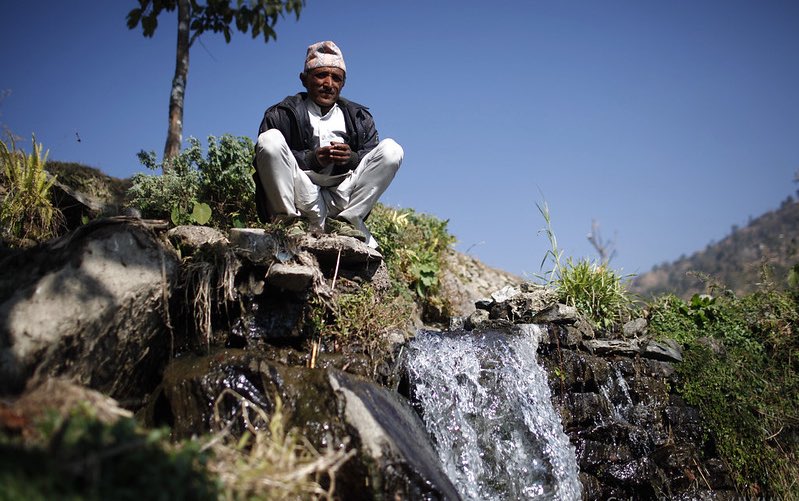The theme of World Water Day 2021 (March 22) is “Valuing Water”—recognizing that unless resources are valued, they won’t be used sustainably. But what do we really mean when we talk about water’s value?
Water has not one, but many values. Life could not exist without it, and it has profound spiritual, religious, and cultural associations. Water also has important and increasingly recognized environmental and intrinsic values. We all depend on the ecosystem functions water resources provide: Wetlands act as natural filters for contaminants; communities around the world rely on the earth’s multitude of aquatic habitats and their diverse species for a healthy environment, food, and livelihoods. At the same time, efforts to quantify the benefits of water often focus on its economic value in agriculture, mining, industry, and service sectors; policy attention falls on those and on the role of water in economic growth, food security and resilience.
However, despite the high value placed on water resources, they are seldom managed sustainably, as reflected in growing water pollution, groundwater depletion, expanding scarcity and degradation around the world.
Water’s myriad values present both an opportunity and a challenge to improve its management. On the one hand, almost everyone agrees water is highly valuable, but opinions diverge on how it should be valued in the crucial decisions on its use and protection.
Why is this? A key reason is that water—particularly freshwater—resources are highly variable across space and time, making them challenging to measure, monitor and thus manage. To be more precise, the perceived value of each drop of water changes continually, from the moment when it falls as rain, runs off to surface or groundwater resources, is withdrawn for human, plant, or animal use, returns contaminated or not, or supports important environmental uses instream and eventually returns to the atmosphere, potentially thousands of kilometers away from where it originally fell.
The extensive spatial scale of water resources—globally, there are more than 250 internationally shared river basins and close to 600 identified transboundary aquifers—means that there are often mismatches between the hydrologic and social and political boundaries of water management. Moreover, multiple types of users typically draw on the same, shared resource—for so-called productive uses, such as irrigation, industrial, and energy production, but also for domestic and WASH (water supply, sanitation and hygiene) uses, and for environmental uses. Users often compete for access to the same resource, and must contend with overuse or pollution. These many challenges are compounded by cultural and power differences among users.
A recent framework for practitioners developed for improved conservation of freshwater resources proposes four pillars essential for communities that want to put their values into actionable management:
- Secure rights and fair externality considerations provide incentives and authority for communities to manage their water and account for impacts on others
- Strong community capacity to govern water resources can help overcome complexity challenges as well as improve equity in knowledge
- Effective multi-stakeholder platforms bring together different actors to discuss and agree on actions for solving problems
- Sustainable livelihood and development opportunities provide for both material and non-material well-being from water resources for current and future generations.
To implement the four sets of inter-related actions reflected in these pillars, it is also important to consider water’s cultural connections—a quintessential element of valuing the resource and a way to improve understanding of and action on equity and power. The latter issue is key to avoid perpetuating inequities in access to water resources among diverse stakeholders.
In this way, we can develop a mutual understanding of water’s many values, secure rights that reflect them, reduce externalities, effectively engage with other user groups with either similar or different values, and seek sustainable livelihood and development opportunities. Together, these efforts can help to ensure that the many values of water are preserved despite growing pressure on the resource. An opportunity to put World Water Day 2021 into action!
Claudia Ringler is Deputy Director of IFPRI’s Environment and Production Technology Division (EPTD) and a Flagship Co-Lead in the CGIAR Research Program on Water, Land, and Ecosystems; Ruth Meinzen-Dick is an EPTD Senior Research Fellow.







